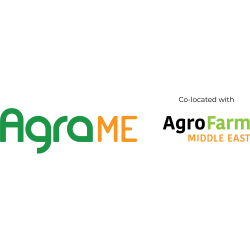JOHANNESBURG— As global trade uncertainty escalates, the imperative to unlock intra-African trade opportunities through the African Continental Free Trade Area (AfCFTA) has never been more urgent. This is the view of Louis van Ravesteyn, Standard Bank’s head of agribusiness, who, in an exclusive interview with Engineering News, underscored the transformative potential of the AfCFTA for the continent’s agricultural sector.
While the AfCFTA Agreement remains under governmental deliberation, its eventual implementation is poised to fundamentally reshape trade dynamics across Africa, particularly for agricultural commodities. Van Ravesteyn highlights that a fully realised AfCFTA will dismantle trade barriers, unlock new markets, and foster crucial regional integration within agriculture. He pointed out that historical hurdles such as bureaucratic red tape and protracted border queues have stymied the continent’s food security efforts and exacerbated food waste.
Despite over 40% of South Africa’s exports already flowing into African nations, Van Ravesteyn identifies critical bottlenecks to deeper intra-regional trade: a severe deficit in logistics infrastructure and inadequate cold chain storage. “Significant focus and investment is pouring into logistics and cold chain capabilities, but we need more, continent-wide,” he asserted, noting Standard Bank’s active support for such infrastructure development, including silos and warehouses.
South Africa’s key agricultural exports to the rest of Africa typically include fruit, wine, grains, beef, and vegetables. Van Ravesteyn emphasized that increased intra-continental trade is vital for African countries to build resilience against global shocks. However, he stressed the continued importance of retaining the US market, especially for high-value exports like table grapes, wine, nuts, and citrus. He expressed optimism that upcoming meetings between US and South African delegates will yield reduced trade barriers or even a new bilateral agreement.
Tapping into China’s Agricultural Appetite
Beyond the continent, leveraging China’s agricultural import diversification strategy presents a significant opportunity for African producers, given China’s status as one of the world’s largest importers of agricultural produce. Van Ravesteyn highlighted China’s keen interest in African agriculture, citing the continent’s fertile soil, competitive labour costs, ample sunshine, and consistent rainfall in most regions. “China is an open, big market; hence the importance of getting protocols approved between governments,” he stated.
Standard Bank actively facilitates this engagement, leveraging its robust relationships with Chinese investors and companies. The bank provides dedicated partners and facilitators to bridge cultural and language divides between African nations and China. “We offer a comprehensive trade solution between Africa and China to assist customers in moving more products into that market and generating greater foreign currency earnings,” Van Ravesteyn explained, referencing trade expos where Standard Bank connects African producers with Chinese offtakers. Such platforms for connection and information exchange are increasingly valuable as the global landscape shifts towards new trade alliances and market diversification.
Nampo’s Global Reach and G20’s Influence
Van Ravesteyn cited the recent Nampo agriculture show in Bothaville, Free State, as an example of this growing global engagement. The event now draws 20,000 to 30,000 daily attendees from the region, alongside key stakeholders and original-equipment manufacturers worldwide, to deliberate on advancements in genetics, cultivars, technology, and sustainability. Standard Bank often supports the showcasing of South Africa’s robust commercial agriculture capabilities, concurrently connecting local producers with other African stakeholders to foster knowledge exchange on agricultural value chain developments.
Nampo, according to Van Ravesteyn, has evolved into a global event, attracting participation from countries as far as Brazil and Argentina, signalling a growing interest in investing in African agriculture and facilitating more trade. “Local farmers are realising they have a wider impact in the country and the continent as a region in improving food security,” he remarked, citing Nigeria’s primary agriculture sector, which is four to five times the size of South Africa’s, as an example of mutual learning opportunities.
South Africa’s G20 presidency this year is also proving instrumental in advancing Africa’s agricultural narrative, enabling more foreign delegations to explore the continent’s offerings.
Empowering Small-Scale Farmers
Beyond increased global knowledge sharing and intra-regional trade, Van Ravesteyn emphasized the critical importance of supporting small-scale farmers. While South Africa’s produce is predominantly from commercial farmers (80% to 90%), and other African countries often see the majority of produce from small-scale growers, both scenarios present significant scope for small-scale farmer support through diverse models.
Standard Bank, he explained, strives for a deep understanding of small-scale farmer needs and their integral role across the value chain. The bank runs various upskilling initiatives and enterprise development programmes to enhance profitability and financial management skills among farmers.
One such initiative in South Africa, “One Farm Share,” tackles food waste, provides food relief to vulnerable communities, and assists farmers with market access. Van Ravesteyn highlighted the growing involvement of financial institutions in developing entire value chains, rather than solely investing in individual assets. Another initiative, “One Farm Grow,” has successfully digitised the agriculture value chain in Kenya, with Standard Bank collaborating with input providers and commercial offtakers to strengthen and modernise the sector. In instances where direct engagement with farmers and offtakers is not feasible, the bank often supports offtakers to indirectly bolster small-scale farmers further down the line, demonstrating diverse models for value chain development.
Van Ravesteyn concluded that the next five years will be pivotal in shaping the AfCFTA to deliver tangible benefits and foster greater free trade across Africa. “We encourage government and industry players in discussions to come up with practical low-hanging fruit solutions to get things going,” he urged.




